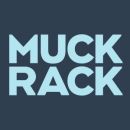As offices reopen, autonomy is front and center.
According to McKinsey & Company research published in July, the top factors driving retention are aspects of worker autonomy. Employees want to determine where and when they work and what they work on. The top driver of attrition? A lack of those same autonomous characteristics.
For Laura Kennedy, principal retail and customer analyst at CB Insights, autonomy depends on trust.
“You want your managers to trust that you will get done what you need to get done — and then the hope is that they will give you a bit more freedom and time to do what you want to do,” Kennedy said.
Kennedy says she’s found that trust at CBI, where she has the flexibility to structure her days to incorporate continued learning alongside her regular workload. That freedom gives her the confidence and skills to introduce new ideas and take ownership of implementing them.
When Kennedy is able to lead with solutions, she’s not only a happier, more fulfilled employee. Her employer reaps the benefits, too. Kennedy has led an effort to enhance the reports she and her team write, which means customers are getting more data than before. And she’s not alone in finding value in trust and a sense of ownership in the workplace. Built In NYC sat down with three professionals to learn how autonomy has improved their career development, workplace satisfaction, and even their company’s bottom line.
CB Insights helps enterprises make informed decisions about tech. Its market-intelligence platform uses machine learning, algorithms, data and visualizations to answer the big questions about strategy, competition, new markets, growth and tech. Behind the data and visualizations is a team of researchers who bring reports to life for CBI’s customers.
What does autonomy at work mean to you?
I can structure most days as I please. I allocate time to learn and time to make or do stuff. The time to learn can include reading news in trade publications, exploring funding trends on the CBI platform, or scheduling calls with startups and venture capitalists to get a more detailed view on what they’re working on or the challenges they’re confronting. At the same time, learning can also be internal, like regular meetings with our customer success team leaders to hear what our clients are saying and what we can do to help keep them as subscribers.
How have you been able to build a satisfactory level of autonomy at CBI?
At any job, a key factor in building autonomy and independence is execution. CBI is a particularly good example of this model. We rely heavily on concrete metrics to measure performance on our research team, which prioritizes delivering on expectations. So I have worked hard to deliver at a high level, which I’d like to think has opened up opportunities to forge ahead into new research areas and lead new ways of thinking about our research.
On a personal and developmental level, I have always been open to getting and giving feedback. Both sides of feedback help me grow and also help me share my point of view and what I’m capable of both on the research team and in the company.
That support for making products better as we go gives analysts the freedom, flexibility and confidence to initiate and try new things.”
How does CB Insights support you in finding the autonomy you need in your career?
Broadly speaking, the research team and company leaders have built a research framework that gives analysts the types of reports to write. Within that structure, we have room to explore different topics and ways of approaching them.
CBI also prioritizes speed and trying new things. It means analysts can work on something, publish it quickly and still make changes the next time they write the same report. That support for making products better as we go gives analysts the freedom, flexibility and confidence to initiate and try new things.
I have had excellent managers who have always encouraged me on the second part: leading exploration into new ideas and moving quickly to implement them with the confidence that we can make changes as we go. A few years ago, I led the development of our quarterly funding reports across sectors. As we moved toward deepening the data in the reports, I collaborated to direct the new content. More recently, I heard from analysts that they wanted more one-on-one career guidance, so in the course of several weeks, I initiated and implemented a mentorship program within the research team.
Muck Rack helps organizations tell their stories with its public relations management platform. The platform connects PR teams with the right journalists. Plus, through Muck Rack, PR professionals can develop custom pitches, monitor the news and quantify the impact of earned media for their companies.
What does autonomy at work mean to you?
Autonomy at work means having ownership of my career and the resources to achieve my goals. That means being supported when I want to make a change or need to find balance in my daily life. I made an early career shift from data science to front-end engineering, and while I began my role at Muck Rack with limited startup experience, I was given the time and resources to settle in, learn a new tech stack and grow. Day-to-day, I enjoy a diverse slate of tasks and activities like coding, technical writing, design review, or planning company meetups and social events. If I feel particularly overwhelmed, I know I can take a step back and trust my colleagues will be supportive and understanding. Having this flexibility is key to exploring my interests and controlling the pace and direction of my career.
How have you been able to build a satisfactory level of autonomy at Muck Rack?
Consistent communication is key to building workplace autonomy, and Muck Rack has facilitated this from day one. I’m made aware of any organizational and process changes early on through weekly one-on-ones with my manager, and that gives me the chance to voice any opinions or preference of projects. For example, despite being aligned to a feature-focused team, I’ve been able to maintain ownership of some refactors and internal initiatives aimed at improving code health.
Consistent communication is key to building workplace autonomy.”
More broadly, my manager and I work together to define growth opportunities and actionable items that will help me develop in areas of leadership and individual contribution. It is important to have multiple open channels of communication that continuously reassess and measure progress toward my short- and long-term goals.
How does your Muck Rack support you in finding the autonomy you need in your career?
Muck Rack provides benefits and resources I use to better myself and define my career. I’ve worked toward my leadership goals by attending company-sponsored workshops on interviewing techniques and fostering an inclusive workspace. I immediately applied these lessons while sitting on a hiring panel and hosting company networking meetups. Dedicated learning days and access to online courses expanded my knowledge of Django and RESTful APIs so I can handle complicated bugs and features beyond the front end of our application. With our remote culture and co-working benefits, I am free to create the environment I need to be productive while also balancing my work and personal life. I’ve been to several WeWorks in New York for a nice change of scenery or to meet up with colleagues, but I’ve also spent more time with family and friends by mixing in vacation and remote work in other cities.

FireHydrant is focused on reliability. Its incident management platform creates a consistent and automated incident response lifecycle that helps developers focus on finding solutions. FireHydrant’s tech helps teams build more reliable software, take control of systems and collaborate better and faster.
What does autonomy at work mean to you?
Autonomy at work implies and requires a high-trust environment with clear priorities and outcomes that you’re accountable for — in an autonomous culture, you’re trusted to deliver on those outcomes, or in some cases, to steer the priorities in a different direction. I strive to find autonomy in my work because it’s an important signifier of organizational culture. I want to be trusted with my area of responsibility, and I want to trust other people with theirs. I have faith in the engineers that I work with to make the best decisions within their sphere of awareness and to surface things that need higher priority.
How have you been able to build a satisfactory level of autonomy at FireHydrant?
Finding the boundaries of responsibility and communication within an organization helps build autonomy. With a clear mental map of who’s doing what, you can find the gaps that you bridge and make the most impact there. To build your own autonomy, you also need to exhibit the same values that you expect from others; it’s important to make it bi-directional. You can’t expect autonomy from your peers, but micro-manage your team’s work — at least not very successfully.
With a clear mental map of who’s doing what, you can make the most impact.”
How do FireHydrant and your direct manager support you in finding the autonomy you need in your career?
FireHydrant and my manager approach work with a similar set of values and have built a high-trust culture. Working with great, smart and trusting folks, it’s immediately evident how autonomous of an environment FireHydrant has created. My peers and manager are always happy to engage with me about any issue, but they default to the starting assumption that I’ve got it handled. I make sure to approach others with the same starting assumption: I’m here to help, but I trust you to handle it, and I trust you to reach out if you need something.











